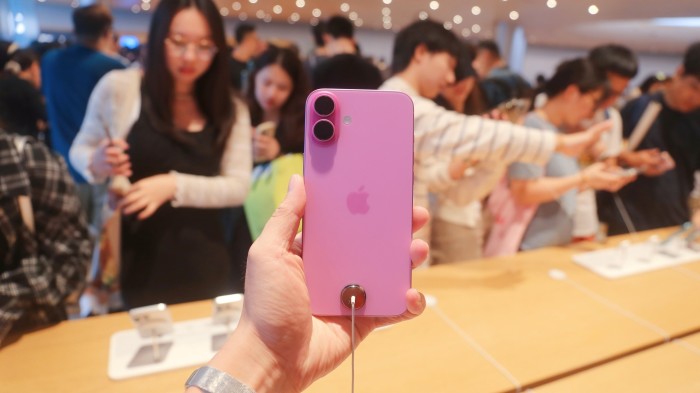Unlock the Editor’s Digest for free
Roula Khalaf, Editor of the FT, selects her favourite stories in this weekly newsletter.
Apple is facing an uphill battle to release its own artificial intelligence models in China, with a top Beijing official warning that foreign companies will confront a “difficult and long process” to win approval unless they partner with local groups.
Apple chief Tim Cook arrived in China on Monday for his third visit of the year as the company tries to navigate the country’s complex regulatory regime and bring its Apple Intelligence to devices sold in the country.
In recent months, the iPhone maker has been holding talks with Chinese tech companies to help power Apple Intelligence in the country. It has been gradually rolling out the suite of AI features in the US since October.
Apple has also considered running its own large language models in China, according to two people familiar with the matter.
But a top Chinese tech regulator told the Financial Times that foreign groups like Apple would face a lengthy and complex approval process to run their own models and indicated partnering with locals was their best option.
The high-ranking official at the Cyberspace Administration of China said it would be a comparatively “simple and straightforward approval process” for foreign device makers to use already vetted LLMs from Chinese groups.
The Chinese official was speaking on the sidelines of the World Internet Conference held in Wuzhen, west of Shanghai, last week. All companies seeking to offer generative AI services to the public must go through an approval process that typically involves official testing of their LLMs.
Apple declined to comment.
The US tech group has been working to reinvent itself around AI this year, betting that consumers will upgrade their devices to access new features that will not work on older models of the iPhone.
Apple’s sales in China have faltered amid a top-down campaign to cut iPhone usage among Chinese state employees and a nationalist backlash over thorny US-China relations.
The return of national champion Huawei, which has already integrated its generative AI offerings into its latest devices, poses another threat.
In the US, Apple’s own models power features such as Siri, writing aids, photo editing, and custom emoji generation, using a mixture of on-device processing and Apple’s cloud servers. The company has tapped OpenAI’s much larger models to handle more complex queries.
If Apple cannot use its own models in China, it would leave it relying on LLMs from Chinese partners to power all generative AI features in phones sold on the mainland.
Apple’s AI tie-up talks have included discussions with search giant Baidu, according to three people familiar with the matter. One of the people added that Apple had also spoken to tech group ByteDance and Moonshot, the start-up behind the Kimi AI chatbot.
China is Apple’s most important market outside the US, contributing 17 per cent of revenue in the year ending in September. But sales in the country were down 8 per cent from the prior year.
When Cook visited Beijing last month, he told local media the company was “working hard” on Apple Intelligence’s China debut.
“There is a very specific regulatory process behind this, and we need to complete this process,” he said. “We also hope to bring it to Chinese consumers as soon as possible.”
JPMorgan analyst Samik Chatterjee said “the China regulatory process remains a bit more opaque to Apple and other international companies”.
Apple would probably take a “flexible” approach, pursuing partnerships with Baidu as well as other smaller companies in China, putting them in a “better position to get approval”, he said.
Still, the uncertainty over the regulatory process “is likely to push the timeline of the rollout of Apple Intelligence [in China] well into the second half of 2025” or beyond, Chatterjee said.
Source link









